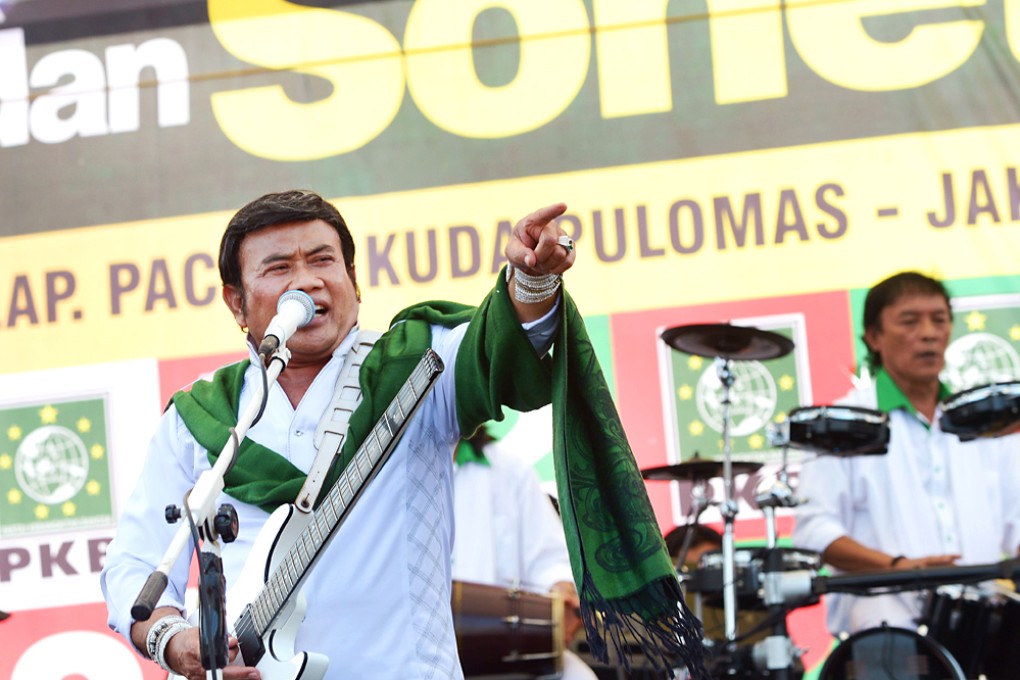Indonesia’s ‘Elvis’ leads celebrity charge at polls
Indonesian political analysts say candidates won't standing for office because of corruption but singer Rhoma Irama, who likes to don an Elvis costume, insists his bid is serious

A white jumpsuit stretched over his bulging belly, an ageing crooner known as Indonesia’s Elvis launches into song ahead of Wednesday’s elections, one of a parade of celebrities standing as candidates or acting as cheerleaders.
Rhoma Irama, who was seeking support for his own presidential bid and for the Islamic party that backs him, is part of a star-studded push for votes in the legislative polls, which set the stage for the presidential elections in July.
The tactic seems to be working among some supporters; “Bro Rhoma I love you, bro Rhoma for Indonesian president,” screamed one woman wearing a purple Muslim headscarf at his Jakarta concert as she danced vigorously.
But while the presence of celebrities adds colour to the elections, analysts say the trend highlights the woeful state of political life in Indonesia 16 years after dictator Suharto left power.
“Activists from civil society with the capacity to lead are not interested in taking part in the elections.”
Parliament is regarded as one of the country’s most corrupt institutions, with several lawmakers having been jailed for graft in recent years and pictures of MPs asleep in session regularly splashed across the press.